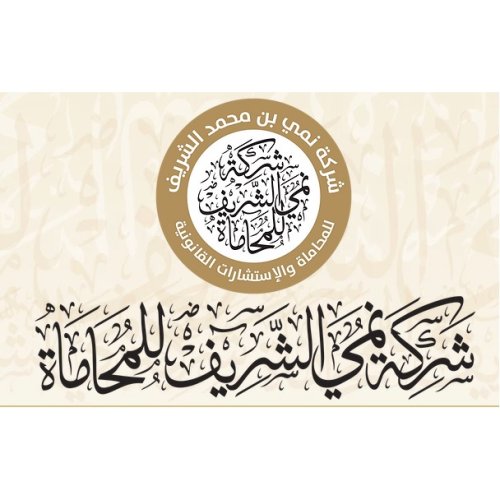Best Sanctions & Export Controls Lawyers in Makkah
Share your needs with us, get contacted by law firms.
Free. Takes 2 min.
List of the best lawyers in Makkah, Saudi Arabia
About Sanctions & Export Controls Law in Makkah, Saudi Arabia
Sanctions and export controls law in Makkah, Saudi Arabia involves the regulation of cross-border trade, the movement of goods, services, technology, and people, as well as the enforcement of international and national sanctions. These laws are designed to protect national security, comply with international obligations, and support the Kingdom's foreign policy objectives. Companies and individuals operating in Makkah must ensure compliance with Saudi laws, as well as any relevant United Nations or Gulf Cooperation Council sanctions, to avoid penalties or prosecution.
Why You May Need a Lawyer
Legal advice in the area of sanctions and export controls in Makkah may be essential for several reasons. Mistakenly exporting restricted goods, providing services to sanctioned individuals or entities, or violating technology transfer regulations can lead to serious criminal and civil consequences. Common situations where legal help may be necessary include:
- Determining whether an item is restricted or subject to export licensing
- Handling goods with dual civilian and military uses
- Responding to government investigations or audits
- Navigating complex transactions involving foreign parties
- Understanding the implications of new sanctions or international developments
- Challenging penalties or enforcement actions by government authorities
- Drafting compliance programs for businesses and training staff on sanctions law
An experienced lawyer can help analyze risks, develop compliance strategies, respond to authorities, and represent clients in administrative or legal proceedings.
Local Laws Overview
Sanctions and export controls in Makkah are governed primarily by national Saudi Arabian law, which is fully applicable in the region. Key legal frameworks include the Law of Trade in Strategic Goods, the Anti-Money Laundering Law, the Combating Terrorism Crimes and its Financing Law, and relevant Royal Decrees or Ministerial Orders implementing United Nations or regional sanctions. Important points include:
- Strict prohibitions on exporting certain strategic or military items without a special license
- Requirements for reporting suspicious transactions and activities related to sanctioned entities
- Severe penalties for violations, including fines, trade bans, or imprisonment
- Periodic updates to restricted parties lists and embargoes, in line with international decisions
- Customs regulations controlling exports, imports, transshipment, and re-export from Makkah
Businesses must also adhere to internal compliance measures and remain vigilant about changes in the law.
Frequently Asked Questions
What are sanctions and export controls?
Sanctions are legal restrictions imposed on specific countries, individuals, or entities for reasons such as national security or foreign policy. Export controls regulate the transfer of certain goods, technology, and services across borders, especially those with military or strategic uses.
How do I know if my product is restricted in Makkah?
You must check the list of strategic and dual-use goods published by Saudi authorities. Legal advice can help determine whether your product falls under export control regulations.
Can I do business with all countries from Makkah?
No. Saudi Arabia prohibits trade with certain countries or individuals subject to international or national sanctions. Always check with government lists or seek legal advice before proceeding.
What are the penalties for violating sanctions or export controls in Saudi Arabia?
Penalties include substantial fines, loss of export privileges, confiscation of goods, or imprisonment, depending on the severity of the violation.
Is personal travel subject to export controls?
Travel itself is not usually controlled, but carrying restricted items, data, or software may be a violation without proper authorization.
Do export controls apply to technology transfers or emails?
Yes. Transfer of controlled technology by email, cloud storage, or other electronic means is subject to the same regulations as physical items.
What should a business do to ensure compliance?
Develop a compliance program, train staff, perform due diligence on customers and partners, and regularly check official guidance and sanctions lists.
Who enforces sanctions and export controls in Makkah?
Various government bodies, including the Ministry of Commerce, the Saudi Customs Authority, and security agencies, oversee enforcement.
Can sanctions be challenged or appealed?
In some cases, yes. Individuals or companies may challenge enforcement actions or penalties through administrative or judicial procedures, often with a lawyer's help.
Are there exceptions or licenses available under Saudi law?
Yes. Saudi authorities can issue licenses for certain exports or transactions with proper justification. Legal assistance is recommended to navigate the licensing process.
Additional Resources
If you are seeking further information or guidance, the following Saudi governmental bodies and organizations are especially relevant:
- Ministry of Commerce
- Saudi Customs Authority
- Saudi Export Development Authority
- Ministry of Investment
- Saudi Arabian Monetary Authority (for financial sanctions information)
Consider contacting professional organizations, trade associations, or consulting with specialized legal professionals familiar with sanctions and export controls in Saudi Arabia.
Next Steps
If you believe your business or activities may involve items or transactions subject to sanctions and export controls in Makkah, you should promptly seek qualified legal advice. Keep documentation for all cross-border transactions, regularly monitor government updates for changes in the law, and engage a lawyer experienced in Saudi trade and compliance law. Early intervention and preparation are critical to avoid violations and protect your legal and commercial interests in Makkah and beyond.
Lawzana helps you find the best lawyers and law firms in Makkah through a curated and pre-screened list of qualified legal professionals. Our platform offers rankings and detailed profiles of attorneys and law firms, allowing you to compare based on practice areas, including Sanctions & Export Controls, experience, and client feedback.
Each profile includes a description of the firm's areas of practice, client reviews, team members and partners, year of establishment, spoken languages, office locations, contact information, social media presence, and any published articles or resources. Most firms on our platform speak English and are experienced in both local and international legal matters.
Get a quote from top-rated law firms in Makkah, Saudi Arabia — quickly, securely, and without unnecessary hassle.
Disclaimer:
The information provided on this page is for general informational purposes only and does not constitute legal advice. While we strive to ensure the accuracy and relevance of the content, legal information may change over time, and interpretations of the law can vary. You should always consult with a qualified legal professional for advice specific to your situation.
We disclaim all liability for actions taken or not taken based on the content of this page. If you believe any information is incorrect or outdated, please contact us, and we will review and update it where appropriate.













